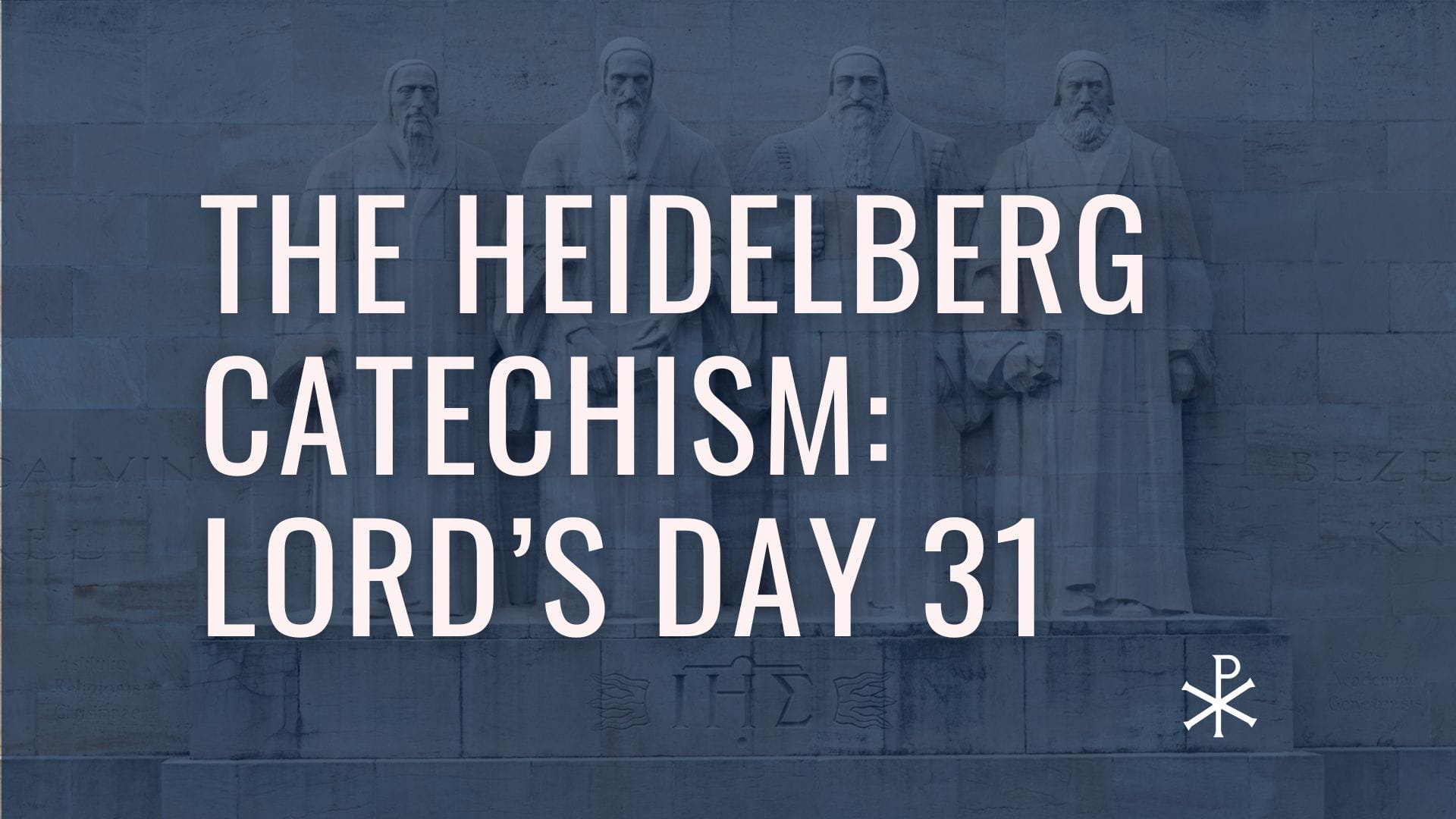Heidelberg Catechism: Lord's Day 31
Who should come to the Lord’s Table—and who shouldn’t? This week’s Heidelberg Catechism devotion explores the pastoral wisdom behind fencing the Table with grace and truth.

After exploring the distinct meaning of the Lord's Supper last week (a gospel-proclaiming meal, not a repeated offering), this week we turn to the question of access: Who should come to the Table, and who should not?
This is not a question rooted in spiritual elitism or exclusiveness, but a pastoral concern that grows out of love for the gospel and care for souls. The Heidelberg Catechism moves from the content of the Supper to the consequences of participating in it. Christ's grace is not displayed carelessly, and his Table is not open to casual misuse. At stake is not only individual discernment but also the health of the church and the witness of the gospel.
In a time when many assume open access is always virtuous, the Catechism calls us to a different posture: humble self-examination, clear accountability, and shepherding love that refuses to blur the boundaries between belief and unbelief.
Question 81: Who should come to the Lord's table?
Those who are displeased with themselves because of their sins, but who nevertheless trust that their sins are pardoned and that their remaining weakness is covered by the suffering and death of Christ, and who also desire more and more to strengthen their faith and to lead a better life. Hypocrites and those who are unrepentant, however, eat and drink judgment on themselves.¹
Question 82: Should those be admitted to the Lord's Supper who show by what they say and do that they are unbelieving and ungodly?
No, that would dishonor God's covenant and bring down God's anger upon the entire congregation. Therefore, according to the instruction of Christ and his apostles, the Christian church is duty-bound to exclude such people, by the official use of the keys of the kingdom, until they reform their lives.
¹ 1 Corinthians 10:19–22; 11:26–32
The Table Is for Repentant Sinners
The first question might surprise modern ears. Who should come to the Table? Not those who feel worthy, but those who feel their unworthiness most keenly. The Lord's Table is for those who are grieved by their sin but not crushed by despair, for those who long for grace and cling to Christ, and who want to grow in faith rather than fake it.
This represents a gracious invitation, not a narrow gate, but it is undeniably a holy one. The Table welcomes the weary and repentant, not the indifferent or defiant. Hypocrisy and hardness of heart prove dangerous here, not because the Table possesses magical properties, but because it is set apart. Paul warns in 1 Corinthians 11 that eating and drinking "without discerning the body" invites judgment.
The Fence Around the Table
The second question presses further. Should the church practice open communion, extending the invitation even to those whose lives openly deny Christ? The Catechism's answer is unashamedly pastoral and ecclesial: no. Admitting the openly unrepentant to the Supper represents not mercy but malpractice. It dishonors the covenant, confuses the gospel, and endangers souls.
Here we encounter the ancient practice of church discipline, so often misunderstood or neglected today. When a professing Christian defiantly persists in known sin, refuses correction, and lives in unrepentant rebellion, the church possesses not only the right but the responsibility to withhold the Supper. The goal is not punishment but protection, not shame but shepherding.
The Keys of the Kingdom
This marks the Catechism's first major introduction of what it calls the "keys of the kingdom," the authority Christ gave his church to open and close the door of visible fellowship (Matthew 16:19; 18:15–20). These keys are neither political nor punitive but gospel-shaped tools, and one of their primary uses occurs at the Table.
To exclude someone from the Supper is not an act of rejection but a call to return. The church is not declaring, "You are beyond hope," but rather, "You are straying from hope. Come back."
A Holy Invitation, A Loving Warning
These represent hard words, especially in a culture where access is often equated with love and affirmation. But this concerns neither power plays nor purity policing; it's about speaking truth in love. Allowing someone to eat and drink judgment upon themselves represents not compassion but pastoral neglect.
The Lord's Table is a meal of grace, but it is equally a meal of truth. It declares the truth about Christ's sacrifice and calls forth the truth of our response. Faith is required. Repentance is expected. Where these are absent, the church must lovingly say, "Not yet."
A Closing Prayer
Lord Jesus, You gave your body and poured out your blood to bring us to the Table. Thank you for welcoming sinners who come in faith and repentance. Keep me from presumption and pride. Help me examine myself honestly and trust you fully. Give wisdom to your church, that we may guard the Table with grace and truth, welcoming the weary and warning the wayward. As I come, may I always do so with reverence, joy, and love. Amen.
Daily Bible Readings
New Testament in a Year
August 3 – Acts 25:23–26
August 4 – Acts 26:12–32
August 5 – Acts 27:1–26
August 6 – Acts 27:27–44
August 7 – Acts 28:1–16
August 8 – Acts 28:17–31
August 9 – Romans 1:1–17
The Bible in a Year
August 3 – Psalms 52–53; Acts 25:23–26:11
August 4 – Psalms 54–55; Acts 26:12–32
August 5 – Psalms 56–57; Acts 27:1–26
August 6 – Psalms 58–59; Acts 27:27–44
August 7 – Psalms 60–61; Acts 28:1–16
August 8 – Psalms 62–63; Acts 28:17–31
August 9 – Psalms 64–65; Romans 1:1–17
